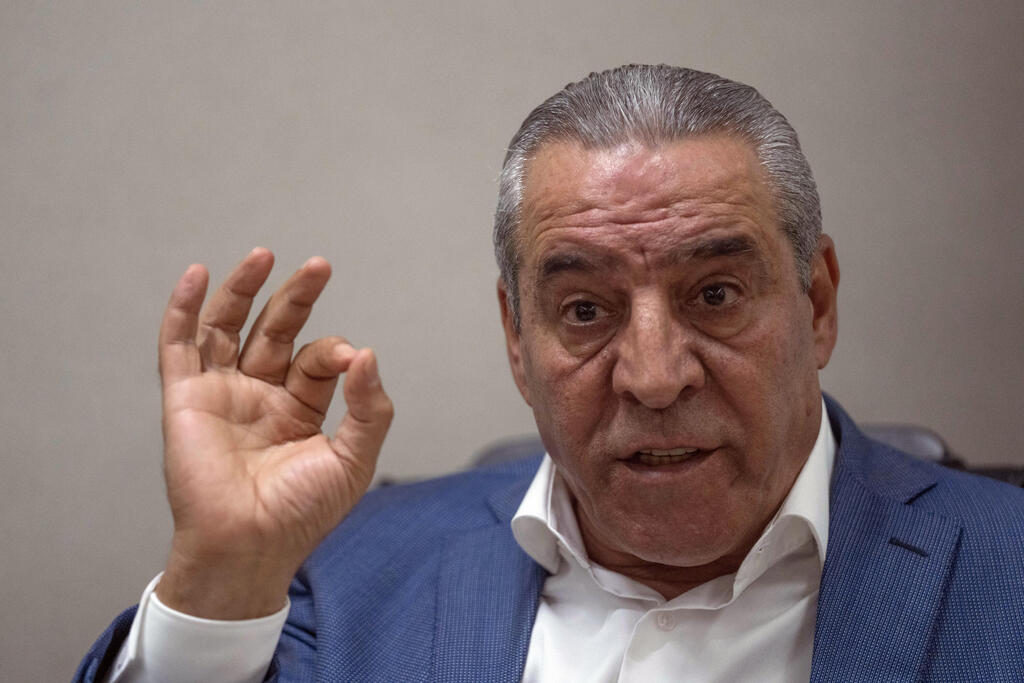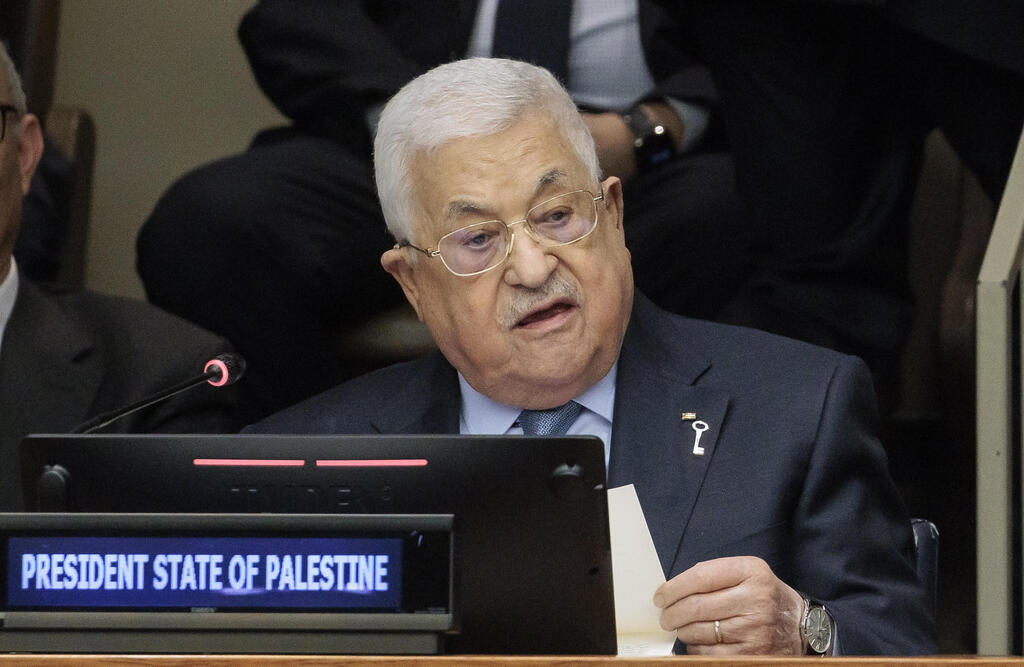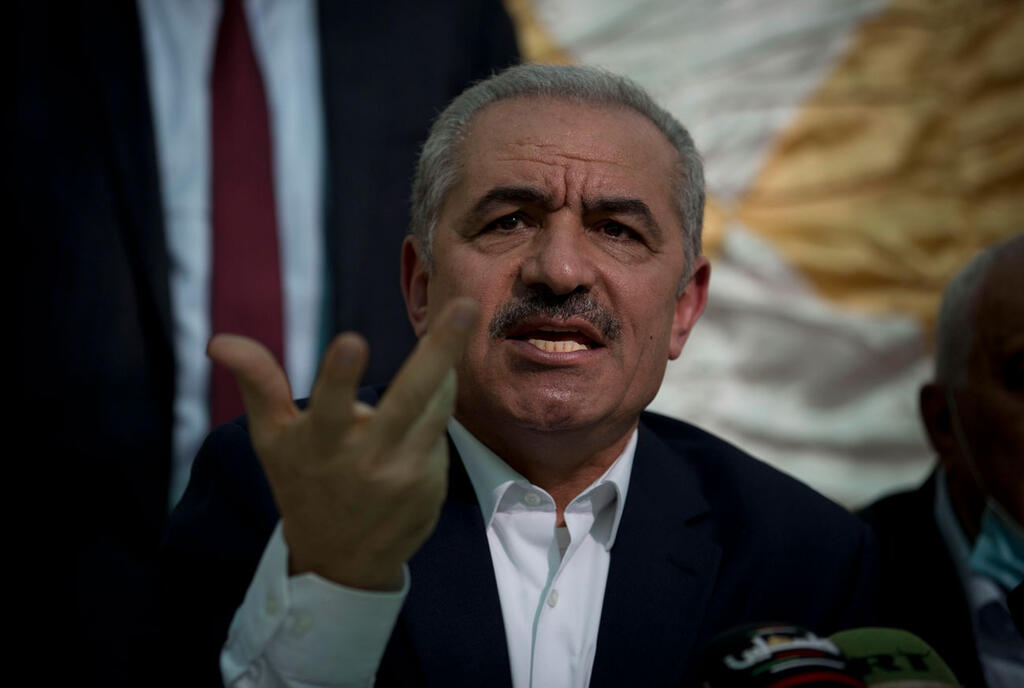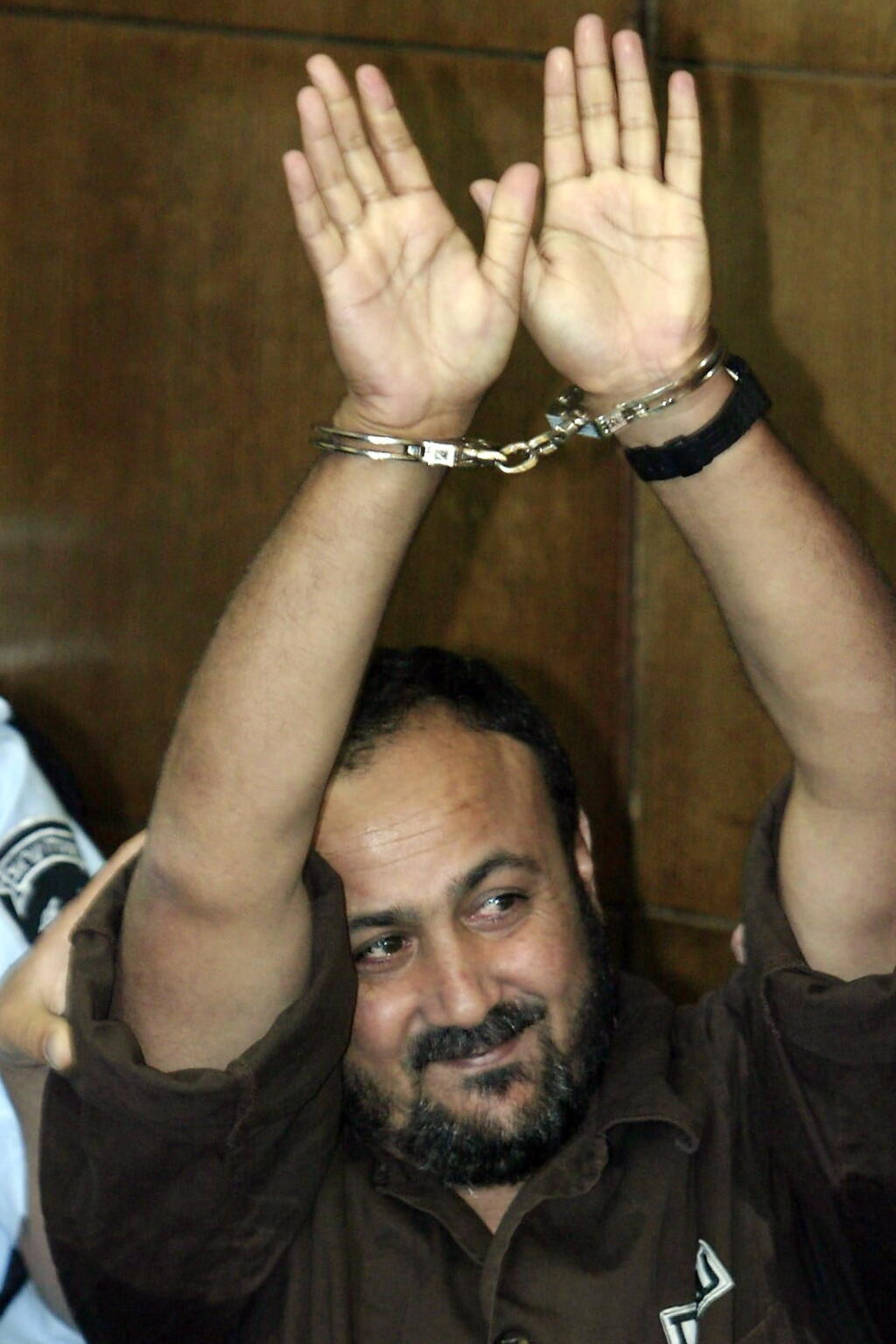Getting your Trinity Audio player ready...
Reports from the Arab world indicate that Israel and officials in the Palestinian Authority are actively making preparations for a post-President Mahmoud Abbas era, as the 88-year-old head of the Palestinian Authority and the ruling Fatah movement is facing significant health concerns that render him incapable of carrying out his role in the foreseeable future.
Within the Fatah movement, a fierce and substantial battle for succession is currently unfolding. Various candidates have emerged as potential successors to Abbas, hoping to perhaps set a different tone for diplomatic relations amid relentless IDF incursions on one side, and constant "lone wolf" attacks against Jewish families on the other.
Due to Abbas' uneven leadership, a profound and consequential discourse has unfolded in recent years, foreshadowing an impending political tempest that will reverberate throughout the region following the eventual passing of the chairman of the Palestinian Authority.
Simultaneously, he actively fosters and cultivates several prominent figures within the Palestinian political landscape, yet has refrained from designating a definitive successor. According to his closest confidants, Abbas is determined to avoid sparking animosity toward himself.
However, the dynamic between Abbas and Yasser Arafat that was characterized by a tumultuous history of highs and lows, introduces an intriguing twist. It was fate that Arafat, prior to embarking on his final journey to France in late 2004, bestowed his blessing, such that it was, upon Abbas as a beacon of leadership during his absence.
In a report issued by the International Crisis Group (ICG) in January, a dire prediction was made regarding the potential consequences following Abbas' demise. The report emphasized the imminent risks of widespread demonstrations, escalated violene, and the potential collapse of the Palestinian Authority. Furthermore, it highlighted the notion that, while holding democratic elections presents the most favorable outcome, it is deemed the "least probable" course of action.
Multiple contenders are vying for the coveted position. Perhaps the most prominent contender is Mohammad Shtayyeh, the incumbent Palestinian Authority prime minister. Despite his current lack of widespread support within the Palestinian public and the Fatah movement, Shtayyeh asserts his entitlement to succeed Abbas by sheer virtue of his prominent standing in the leadership hierarchy.
Nevertheless, the economic predicament gripping the Palestinian Authority, coupled with ongoing crises in various aspects of daily life and the soaring cost of living, pose formidable obstacles that have hindered Shtayyeh's ability to address and resolve these pressing issues.
The second contender in the race is Hussein al-Sheikh, the secretary general of the PLO Executive Committee, head of the General Authority for Civil Affairs, and a member of Fatah's Central Committee. Al-Sheikh emerges as the most proactive candidate poised to succeed Abbas, enjoying a close relationship with the chairman of the Palestinian Authority, who elevated him to the esteemed position of secretary general of the PLO Executive Committee following the passing of Saeb Erekat.
However, their association is marked by complexity, as recorded instances captured al-Sheikh uttering disparaging remarks about Abbas. Within Fatah's Central Committee, support for al-Sheikh is somewhat scarce, particularly from the senior ranks. Moreover, on the Palestinian street he lacks substantial popularity, with a cloud of corruption allegations swirling above him, exacerbating the public's weariness toward leaders mired in such controversies.
4 View gallery


Hussein al-Sheikh was elevated to secretary general of the PLO Executive Committee
(Photo: AP)
The third contender is Majed Faraj, head of the General Intelligence Service (GIS) and a member of Fatah's Revolutionary Council. Faraj, a major general, holds an esteemed position as Abbas' trusted confidant and favored candidate.
He maintains a low-profile approach, refraining from extensive public engagement, and is widely recognized as a reserved individual who avoids seeking the limelight. Notably, Faraj is renowned for his moderate stance on armed resistance and his commitment to curbing the proliferation of illicit weapons, particularly within the refugee camps.
The fourth contender in the race is Mahmoud Aloul, who holds the prominent position as Fatah's number two and governor of the Palestinian Authority's Nablus governorate. Aloul currently serves as a deputy to Abbas, a role he has held since the inception of the movement.
Renowned for his staunch stance on armed resistance, he aligns with the non-moderate faction within Fatah. As a longstanding figure within the Palestinian leadership and Fatah, he represents the old guard. His close association with Yasser Arafat and Khalil al-Wazir ("Abu Jihad"), one of the movement's founders infamous for orchestrating the killing of numerous Israeli civilians, underscores his deep-rooted connections.
Jibril Rajoub, chairman of the Palestinian Football Association, emerges as another strong contender. Hailing from the Fatah movement, Rajoub boasts an impressive background as the former head of security in the West Bank. Widely respected within the movement, he enjoys significant support from the younger generation, particularly in the West Bank.
Notably, Rajoub garners a majority within the central committee of the movement, fostering positive relationships with influential figures such as Hussein al-Sheikh and Muhammad Shtayyeh. His close ties extend to the district governors in the Palestinian territories, many of whom served under his leadership during his tenure as the head of the security forces in the West Bank. Rajoub's popularity further extends to his roles as the president of the Palestinian Football Association and the president of the Palestinian Olympic Committee.
Last on the list is Marwan Barghouti, a Palestinian leader of considerable stature, who has been subjected to a severe prison sentence by an Israeli court, receiving five life sentences and an additional 40 years for his involvement in terrorist activities that resulted in the loss of five Israeli lives and numerous injuries. Imprisoned within Israeli penitentiaries for over two decades, Barghouti has assumed an iconic status among many Palestinians, embodying the role as a sort of living martyr.
Mohammad Dahlan, a prominent Palestinian figure who formerly held a leadership position within the Gaza Strip's security apparatus and served as a key figure in the Fatah movement before his exile to the United Arab Emirates, has publicly declared his endorsement of Barghouti.
The Khan Younis native emphasizes the necessity of supporting Barghouti's candidacy in anticipation of upcoming democratic elections, confidently asserting that Barghouti possesses the capability to secure a resounding victory.
A recent survey conducted among participants in the West Bank and Gaza Strip revealed that 68% of Palestinians are in favor of promptly organizing general elections for Palestinian institutions, including the parliament and the presidency. The survey, carried out by the Konrad-Adenauer Institute in Ramallah, highlighted Barghouti as the favored candidate to succeed Abbas, with Hamas leader Ismail Haniyeh following closely behind.
Only 19% expressed satisfaction with Abbas' performance, while 77% of respondents expressed their desire for his resignation.





